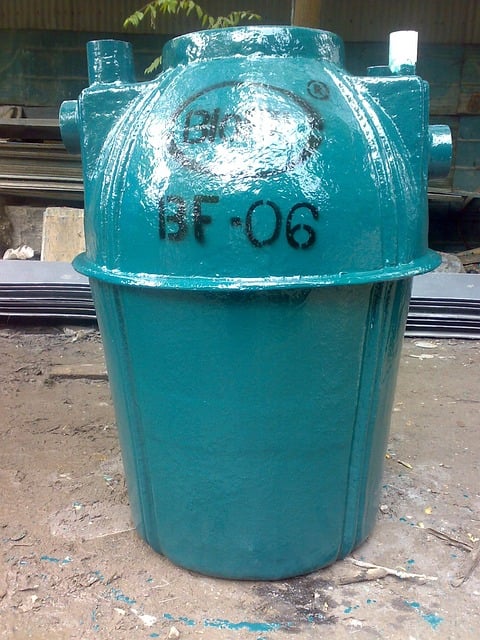Understanding septic system maintenance is crucial for homeowners as regular upkeep ensures efficiency and prevents costly repairs. DIY methods can handle basic issues like clogs or odors, but advanced tasks such as tank pumping, pipe inspection, and drain field monitoring require professional knowledge to avoid environmental contamination. Regular inspections, responsible waste disposal, and tank pumping every 3-5 years are key DIY practices. Professional maintenance offers extended lifespan, optimal performance, and early issue identification, making it essential for complex problems like unusual odors or slow drains.
In the realm of home upkeep, understanding your septic system maintenance is paramount. While many homeowners opt for DIY approaches, not all aspects of septic care can—or should—be tackled independently. This article guides you through the essentials of septic system maintenance, clarifying what you can do yourself and when to enlist professional help. From identifying signs that necessitate expert intervention to exploring the benefits of proactive professional care, gain insights into keeping your septic system running smoothly.
- Understanding Septic System Maintenance: The Basics You Should Know
- What You Can Do Yourself: A DIY Guide to Septic Care
- When to Call the Pros: Uncovering Signs and Benefits of Professional Septic Maintenance
Understanding Septic System Maintenance: The Basics You Should Know

Understanding the ins and outs of septic system maintenance is crucial for any homeowner, especially when considering DIY options versus professional services. A septic system is a complex network designed to treat and dispose of wastewater from your home or business. It consists of a septic tank, distribution pipes, and a drain field, all working in harmony to break down organic matter and filter effluent into the soil. Regular maintenance ensures optimal performance and longevity.
Basic knowledge about septic systems includes recognizing the signs of potential issues like clogs, odor problems, or pooly spots in your yard above the drain field. However, for tasks such as pumping the tank (typically every 3-5 years), inspecting pipes for damage, and checking the drain field’s health, professional expertise is highly recommended. These activities require specialized tools and a deep understanding of local environmental regulations to prevent contamination.
What You Can Do Yourself: A DIY Guide to Septic Care

Taking care of your septic system yourself can be a cost-effective way to ensure its longevity and optimal performance. Here’s what you can do as part of your DIY septic maintenance routine: start by regularly inspecting the system for any signs of damage or leaks. This includes checking the pipes, drains, and the tank itself for odd odours, unusual noises, or discolouration. Keep an eye on water levels in the tank and ensure they’re within the recommended range.
Next, focus on preventive measures like limiting the amount of grease, fat, and food scraps that enter the system. Avoid flushing non-biodegradable items such as wipes, sanitary products, or disposable diapers. Instead, use septic-safe cleaning products and practice responsible waste disposal habits. Regularly pumping out your tank (typically every 3-5 years) is another crucial task you can handle yourself, ensuring that solid waste doesn’t build up and overwhelm the system.
When to Call the Pros: Uncovering Signs and Benefits of Professional Septic Maintenance

While many homeowners opt for DIY approaches to save costs, septic system maintenance is one area where professional expertise shines. Regular self-maintenance can prevent costly repairs, but certain tasks require specialized knowledge and equipment. Signs that it’s time to call in the pros include unusual odours, gurgling sounds, slow drains, or visible sewage back-ups. If your system has been neglected or you notice consistent issues, professional intervention is crucial.
Benefits of regular professional septic maintenance include extending the lifespan of your system, ensuring optimal performance, and preventing environmental contamination. Experts can identify potential problems early on, provide tailored solutions, and offer advice on efficient usage practices. This proactive approach saves time, money, and ensures a healthy, sustainable septic system for years to come.
When it comes to septic system maintenance, understanding what you can and cannot do yourself is key. While some tasks like regular pumping and inspection are within DIY reach, complex issues requiring specialized knowledge demand professional attention. By recognizing the signs that necessitate expert care, you can ensure your septic system operates efficiently, minimizing potential health risks and environmental impact. Remember, proper septic system maintenance is an investment in your home’s longevity and the well-being of your community.
